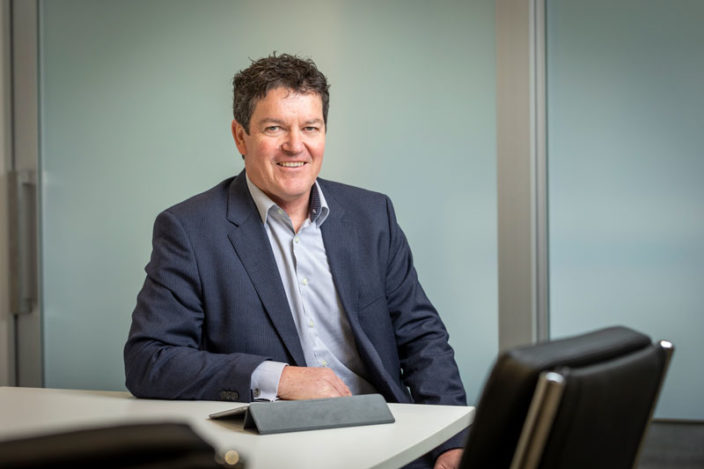Partners Finance & Lease (PFL) prides itself on understanding Kiwi businesses to help them obtain the assets they need to grow. The board of directors consists of Francis Fitzgerald (founder), Jim Boult, Graham Robertson and Bryan Inch. Since it was founded in 2014 the company has supported more than 2,000 businesses with funding their assets.
In this latest series, Marketing Executive Amelia Chubb catches-up with the board of directors to find out more about them and their involvement with Partners Finance & Lease.
Meet Bryan Inch
Board chairman, advisor and independent director of Partners Finance & Lease since the beginning, Bryan is also General Manager of Customer Relationships at Ravensdown – the farm inputs and services co-operative. Alongside this, Bryan operates a farming property in the Canterbury foothills, a pine forest in the same area and residential investments.
What is your background?
“After graduating from Lincoln University with a science degree I spent five years as an agricultural consultant in Canterbury before entering a 25-year career in the banking industry. This was mostly with Rabobank where I held the senior roles of Managing Director (NZ), Head of Financial Services for Australia and New Zealand, and Deputy Global Head of Direct Banking. I returned to New Zealand in 2007 and took up a role as CEO of Canterbury Building Society (now part of Heartland Bank). In 2014 I took up my current role with Ravensdown.”
Why Partners Finance & Lease / what does the company mean to you?
“The Global Financial Crisis was a very challenging period for the non–bank finance sector in New Zealand. This removed most of the smaller players in this space and left a significant opportunity. With Partners, not only had it survived the GFC, but it also had the opportunity to do something a little differently. We have been fortunate to not only attract great shareholders but also establish reliable non-retail funding capability that avoids the more costly and difficult retail funding constraints. It also has always employed great people and has a fantastic team and customer focus.”
How did you stay sane during the COVID-19 lockdown?
“Ravensdown was very privileged to be awarded the essential services entitlement during the Level 4 lockdown period. As a manufacturing and distribution business, we kept all of our plants and stores operating with about 350 front line workers going to work as normal under very abnormal conditions. To support them, we had a further 300+ staff working full time from home at very short notice. As a management team, we were meeting almost daily via video conference and then two to three times per week to redefine the rules in line with the changing Government expectations. The demands of work didn’t give me the time to get as many of my home projects done as I would have liked, but I did get my garage cleaned out!”
What does trade look like from where you are now and going forward?
“It is a great time to be involved in agriculture. As a country, we can produce enough food to feed 40 million people, together with our strong branding around clean and green and now C-19 free (for now anyway!) we have an opportunity to rebuild quicker than many other countries. Agriculture though is a relatively modest employer compared to days gone by and the level of unemployment throughout the country will require very astute government investment and not just handouts. We live in one of the best countries in the world and the visitors will return once they are able. In the meantime, we need to target investment that will rebuild infrastructure and generate employment and confidence.”
Businesses are responding creatively because of COVID-19 – what have you seen / any standout examples of this in your area and beyond?
“The standout for me has been the connectivity and performance that has been maintained with 100% remote working with many parts of our business. It has also been fantastic to see the positive changes to family life for many families with parents and children sharing more day-to-day experiences. This will challenge our return to ‘normal’ and so it should.”
What one piece of advice would you give to uncertain business owners/managers during this time?
“There will be lots of opportunities in the coming period, forget going back to normal, find a new normal, be creative and openminded. Be selective who you talk with, positive people build positive thoughts and create opportunities.”
